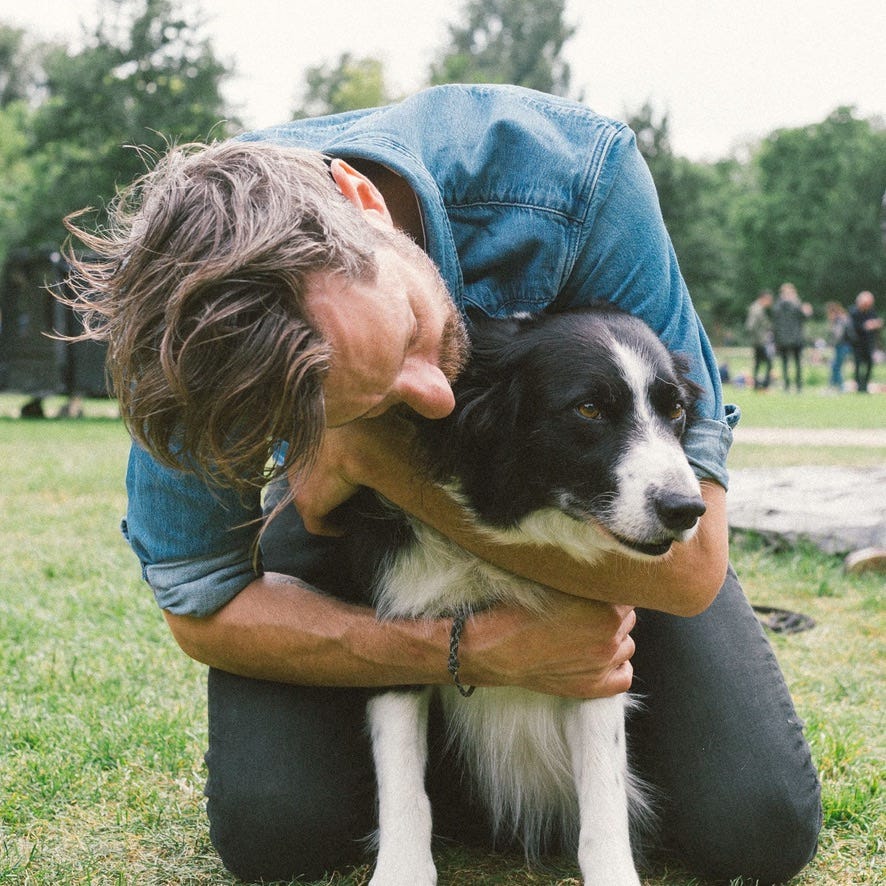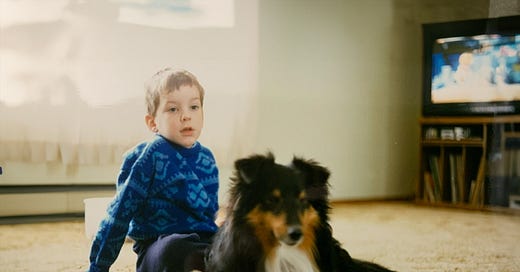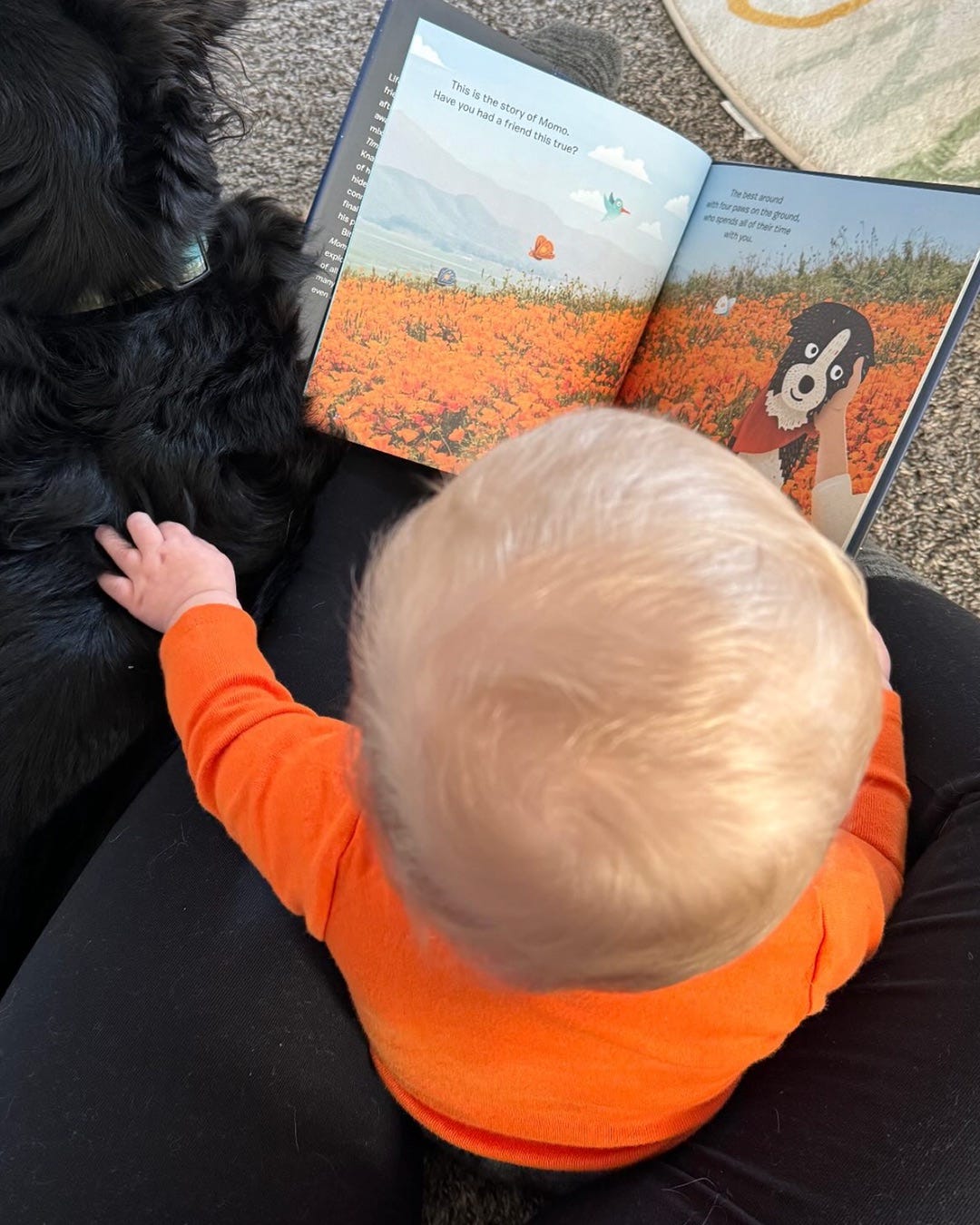Find Momo Everywhere, my book about loss and love, received a review that caught my attention. They wrote that it was “Too heavy for little kids”. They gave the book two stars. I’m not bothered by the two stars, or the review for that matter. I didn’t expect this book to be for everyone. I was however intrigued by the aversion to discussing death with kids. Talking about it is exactly what you should do. At least I’m pretty sure.
This sparked the question: is death too big a concept for kids?
I don’t remember experiencing loss until I was in my teens. My first family dog Tuffy. I remember feeling sad. I remember questioning if I was supposed to show my sadness or hold it inside. I often oscillated between the two. Embracing traditional views of a more toxic masculinity I didn’t understand, and occasionally allowing my sensitive side to reveal itself. I’m sure I was also told that Tuffy went to heaven. I’m sure this confused me.
I was a teenager when Tuffy died, but what about toddlers and pre-schoolers? Is death too big a concept for them? Well, technically it is. They deal with it differently, and they understand it differently. Children don’t grasp the concept of death as being permanent until around age 5 to 7. Sometimes, they’ll even expect them to return. Children handle grief in short bursts, often called “puddle jumping”. They’ll tackle the concept for a short moment, and quickly revert to a coping mechanism, often a form of play. I think adults do the same. We can tackle the concept for longer periods, and still revert to coping mechanisms. Hopefully we’ve developed some healthy ones.
Tiffany Birtch is a therapist, writer, and speaker from Ontario. She shared this video about grieving with a four year old. Go for the video, stay for the comments.
Nicole Parente, a therapist who worked in pediatric palliative care and hospice, commented that “Using ambiguous language like they ‘passed’, are ‘in a better place’, or ‘got sick’ ... actually is more confusing for children than straightforward language like ‘death’ and ‘died’.” She’s right. In interviews with bereaved 5 year olds, children said they wanted truthful information about what happened and wanted help understanding the loss. I’m no academic, but an aversion to speaking to our kids about death just might be an expression of our culture’s inability to accept the concept of death and impermanence.

Loss is an inevitable part of life. And greater harm could be done if we avoid the topic. What’s important is that we offer our kids truthful explanations, and allow them to grieve. And to do this we really have to be present. Our presence, along with our consistent answers and our truthfulness, could be significant for a young mind processing grief. Using activities that don’t solely rely on verbal discussion is also crucial, as words can hold less meaning for young minds. This includes activities like storytelling, drawing, painting, music, dance, movement, playing with toys (or sand boxing), and looking at photos and memorabilia.
When it comes to loss, it’s important that kids are given the gentle truth, the tools to process, and the space to express.
In my book, I made sure to use the word “died”. It wasn’t because someone told me I should, it was my gut feeling that I didn’t want to shy from the big scary word. I didn’t want to paint a picture of an artificial world where dogs go when they die. I wanted to make sure to be clear that Momo wasn’t returning, and that’s okay. That it’s ok to feel big feelings. That it’s ok to be angry or confused, or even to be happy.
Death is a big impossible word. And though no-one should be left alone with it, so should no-one be spared from it. Some adults might choose to be alone to process emotions, but they’ll also benefit from the support of their peers, their family, and their community. But kids will rely heavily on adults to be a beacon. They’ll have questions, they’ll appreciate honesty, and they’ll look to their caregivers on how to feel and what is okay to talk about.
So is death too big a concept for kids? The answer is yes, but death is too big a concept for everyone. It’s also inevitable. When at a loss for answers, we could always resort to the truth. Even if that truth is that we, too, are confused. Death, in all of its mystery, is the most unfortunate truth. But it gives purpose to our impermanence. To quote Viktor Frankl,
“It is death that gives life its meaning.”
With love,
Andrew, Yaya, & Boo
More resources:
Helping Children Deal With Grief
Loss and Grief in Early Childhood
If you have additional helpful resources, or have any advice on speaking with kids about hard topics like death, please share them in the comments.
You can find my book, Find Momo Everywhere, here, or order it at a book store near you.








You know, I sent you a message when we read your book after our dog (Toby) passed away because it just was such a stunning book that really held our raw emotions in it's hands. BUT, when she passed, we had the vet come to our house and we let our 6yo son be there, if he wanted to, and when she was gone he held her paw and kissed her face and cried over her with me and my husband. It was devastatingly sad, and it was also lovely because we all grieved together. His pain and sadness is just as valid as ours and he got to say goodbye and he got to see that mom & dad are sad too. We hide too much from kids under the guise of "protecting" them, rather than guiding them through these "big scary emotions" so that when we aren't there to protect them they have experience to draw from. Kids are so much more than we give them credit for, and we do them a disservice when we sanitize how they experience life.
My son was 3 years old when we had to euthanize our 15 year old cat Jaspurr. My husband and I are not religious, so when we were discussing how to explain things to our inquisitive child we had decided to use died instead of passed, went to the farm, or heaven. One of the reasons was I remembered a family member's eulogy about her 3 year old asking "why they couldn't visit Grandpa in heaven. Why he didn't want to visit them anymore?" I couldn't imagine lying about an imaginary farm that the cat went to instead of staying with us... And I couldnt use a term like heaven when we don't believe in it.
So leading up to the day we described to our child that parts of Jaspurr's body weren't working anymore (kidney failure) and eventually her whole body would stop working and that's what it means to die. We had him in the room before and after the injection (I didn't want him to think that all injections cause death) and we said our goodbyes. A few months later we received our copy of Find Momo Everywhere which I read to my son. He'd noticed that I had been tearing up during the part when Momo died, and asked me to read it again which he typically doesn't do. When we again reached the part where Momo died he looked up tears welling and shouted "I miss Jaspurr!" proceeding to cry afterwards. We took time to cry together and talked about the things we missed about Jaspurr. He still has me read Find Momo Everywhere, we don't cry as much as each reading, but overall I think this has been one of the best books for talking about pet loss at least for non-religious people.